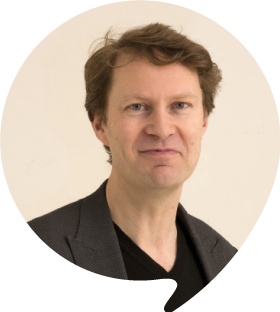2014 Word: Luke Harding
Sessions recorded at Writers and Readers Festivals in New Zealand
Broadcast on Radio New Zealand National at 4pm on Sunday 29 March, repeated at 9pm on Tuesday 31 March 2015.
Luke Harding at the 2014 Word Christchurch Festival
 The Guardian foreign correspondent Luke Harding’s journalistic foray into the world of spying and mass surveillance has mostly been a pretty sobering affair. From his experience of being subjected to heavy-handed intimidation by a Russian spy agency, to the cloak-and-dagger antics involved with the publication of the files leaked by former US spy Edward Snowden, Harding is clear that governments don’t like their secrets being shared.
The Guardian foreign correspondent Luke Harding’s journalistic foray into the world of spying and mass surveillance has mostly been a pretty sobering affair. From his experience of being subjected to heavy-handed intimidation by a Russian spy agency, to the cloak-and-dagger antics involved with the publication of the files leaked by former US spy Edward Snowden, Harding is clear that governments don’t like their secrets being shared.
However, sometimes during these encounters his sense of the ridiculous has been brought into play. Such as when the UK authorities insisted that the Guardian staff physically destroy the laptops which had held the Snowden files – even though all the contents had been copied and were accessible elsewhere in the building, as well as in the New York Times offices on the other side of the Atlantic.
A morning of destruction with drills and hammers ensued, overseen by Ian and Chris from GCHQ who had been lurking outside the Guardian offices for two weeks before receiving the orders to go in. According to Harding, deconstructing a laptop is really hard, sweaty, work. “At the end of this my colleagues posted the smashed-up bits of Snowden laptop into the degausser (a microwave-sized piece of equipment which destroys magnetic data). Finally there was a pop and that was the end of the Snowden material.”
However, that was not the end of the incongruity. Being based in the provincial town of Cheltenham, these spies didn’t get to London very often, and so they’d been using their visit to the capital to shop for their children at Hamleys, the famous UK toy store. “So they smashed up our stuff,” says Harding, “and then they tottered out with these bags from Hamleys to go and see their families back in the provinces.”
In an epilogue to that encounter, Harding recalls meeting Ian the spy later at a conference on cyber security: “And he was outraged, not by the Snowden leaks and the unprecedented loss of private material but by the fact I’d depicted him in my book as a provincial bumpkin.”
There were lighter moments even in the of course working through the mass of secret spy files released by Edward Snowden. Harding detected an odd cultural marker in the code names used for the different surveillance exercises.
“The American code names were all very serious: Prism and XKeyscore,” he said. “The British codewords were all jokey, by people who clearly loved Monty Python. Things like Bad Piggy and Egotistical Giraffe. So you could quickly work out which side of the Atlantic the programmes had been written on.”
Listen to Luke Harding in conversation with Toby Manhire at the 2014 Word Christchurch Writers And Readers Festival: